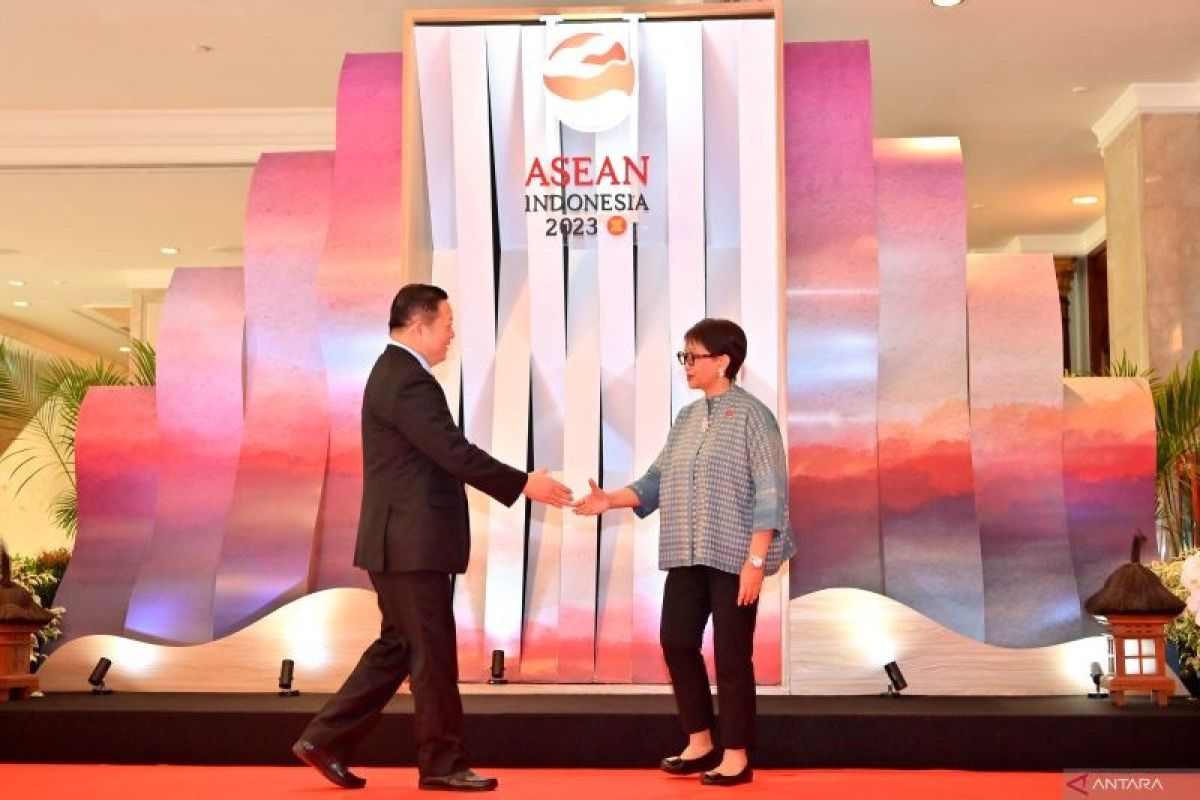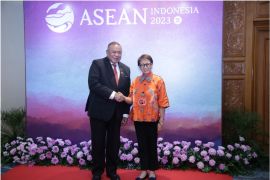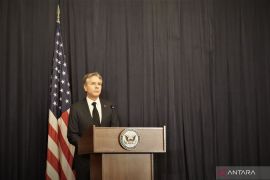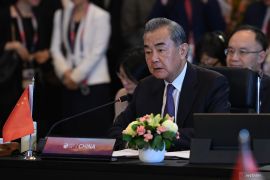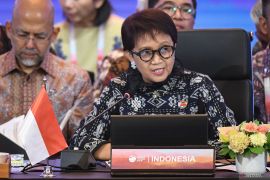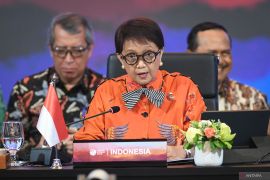While chairing the 56th ASEAN Foreign Ministers' Meeting (AMM) in Jakarta on Tuesday, the minister noted that the world is currently witnessing a higher level of risk of nuclear weapons' use than at any time in recent history.
"No weapon is more powerful and destructive than nuclear weapons. And with nuclear weapons, we are only one miscalculation away from apocalypse and global catastrophe," Marsudi remarked during a meeting with ASEAN foreign ministers.
The statement was addressed to the ministers as the Commission of the Southeast Asia Nuclear Weapon Free Zone (SEANWFZ).
Minister Marsudi noted that the SEANWFZ had contributed to the collective efforts in maintaining the region's peace and stability through global disarmament and non-proliferation regime.
However, the minister also expressed regret over the fact that none of the nuclear weapon states had signed the protocol to the SEANWFZ Treaty, which was inked by ASEAN member states 25 years ago.
The protocol itself was formulated in a bid to invite the five nuclear powers -- China, Russia, France, the United Kingdom, and the United States -- to join the efforts to realize Southeast Asia as a region free of nuclear weapons.
Nevertheless, the minister affirmed that the ASEAN should keep forging ahead to achieve the goal, as she views the threat is becoming more imminent.
"We must come as a united front before the nuclear weapon states. (It is) only then we can forge a clearer path toward a region free of nuclear weapons," she stressed.
In 1995, all members of ASEAN signed the SEANWFZ Treaty, also known as the Treaty of Bangkok.
The treaty obligates its signatory states not to "develop, manufacture or otherwise acquire, possess or have control over nuclear weapons, station or transport nuclear weapons, or test or use nuclear weapons."
Several nuclear weapon states have expressed objections to various points found in the treaty's protocol. Meanwhile, China has expressed its readiness to sign the protocol despite no concrete actions seen so far.
At the 2022 ASEAN Summit, it was agreed that the nuclear powers could partly sign the treaty. This agreement is considered as a crucial foundation for resuming negotiations that have been halted for over a decade.
Related news: Indonesia seeks to expedite South China Sea CoC negotiations
Related news: Marsudi welcomes ASEAN foreign ministers ahead of AMM in Jakarta
Related news: Indonesia ready to welcome ASEAN foreign ministers, dialogue partners
Translator: Yashinta Difa, Tegar Nurfitra
Editor: Azis Kurmala
Copyright © ANTARA 2023
